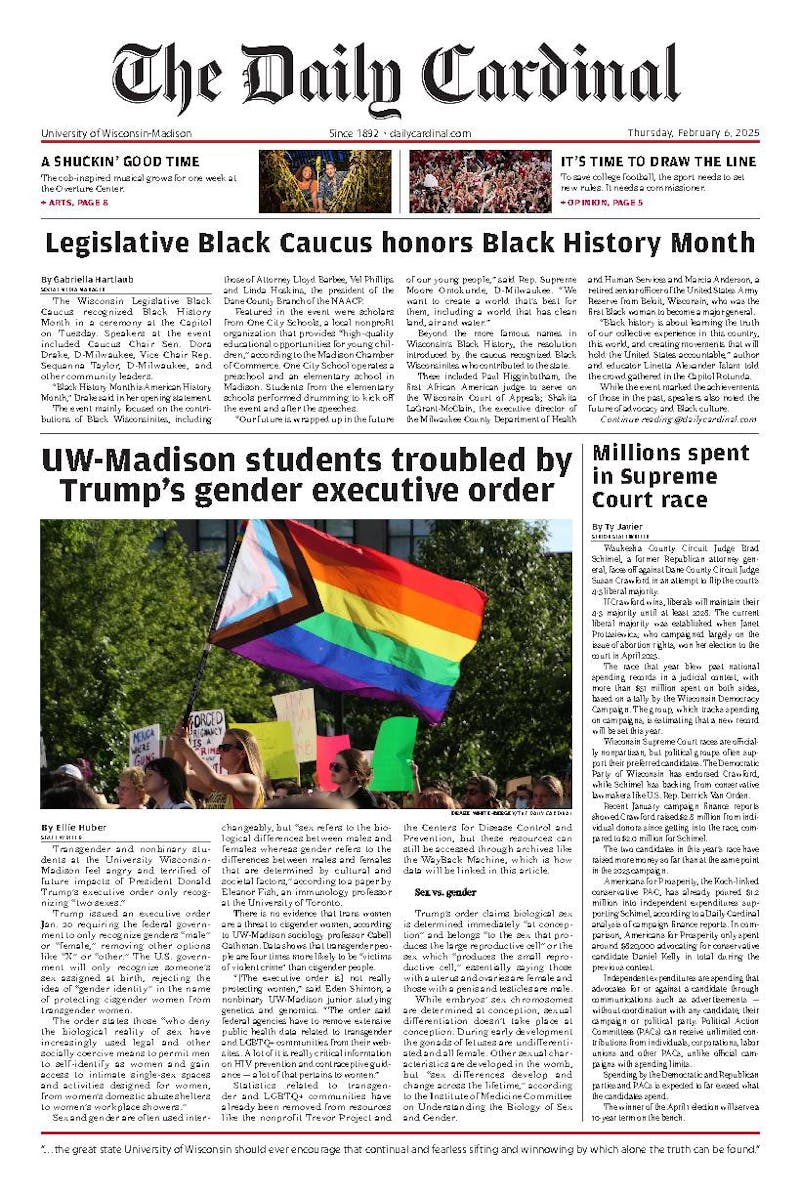UW-Madison sophomore Kendl Friedman has a shocking secret about her iTunes library: She actually paid for every single song and television show"" in it. Friedman is part of a seeming minority of college students who have never downloaded any file illegally.
The International Federation of the Phonographic Industry estimates around 20 billion songs were downloaded in 2005, and that number continues to grow. Fortunately for the IFPI, the number of legal online downloads has also increased.
""Piracy rates are disproportionately high on college campuses,"" RIAA spokesperson Cara Duckworth said. ""College students are experiencing independence, and they see things that are free and want to take advantage of them. Our job with our litigation campaign is to raise awareness to the legal sites that are out there that individuals should take advantage of and also to make individuals aware of the law and the consequences of breaking it.""
As the popularity of piracy continues to soar, the RIAA has been trying to curb instances of illegal downloading on peer-to-peer sites such as Limewire by using its online investigation team to download files onto such networks and then catch whoever uploads the file. While the individual's identity cannot be determined, the Internet Protocol address is retained and a pre-litigation letter is sent to the school so it can be forwarded to the student. UW-Madison, in particular, had issues with this because they originally refused to forward the letters to students.
In this case, if the RIAA does not hear back, a John Doe lawsuit is then filed against the IP address because the individual's identity is still unknown. If the RIAA does not hear from the individual, a lawsuit is filed in the individual's name after obtaining it from the school. At this point, he or she can be charged anywhere between $750 and $30,000 per illegally downloaded file, according to Duckworth.
*Student targets*
While this technique has scared some students away from illegally downloading, many feel the RIAA's tactic is unfair in targeting individuals.
""Ultimately, I think it's sad when a particular student or individual is picked on by a powerful media organization that has access to legal teams that the individual would never have,"" Howard said. ""It's really not fair, particularly that the technologies that everyone wants us to buy right now from the iPhone to the computers themselves seem to be saying, 'Buy me so you can trade music or watch movies.' And I think it's a mixed message.""
Another questionable component of the cases is the possibility that certain students are much easier to target than others, according to Anuj Desai, UW-Madison assistant law school professor.
""This may be a little unfair on their part, but it may be easier to get students in dorms,"" Desai said. ""It's more likely that the person [who gets caught] is on a university network because university networks are faster. Other students do use the university network, but a lot less than the students who live in the dorms and are connected 24 hours a day.""
Something many students do not know about getting caught, according to Duckworth, is the RIAA's online investigation team only targets individuals who also share their own files. However, many are unaware they are doing so because of the default setting on programs, such as Limewire. Desai also said it is actually impossible for the RIAA to tell if an individual is only downloading files.
""[The RIAA investigators] get a Limewire account, they download something and then they sue the person who uploaded it,"" Desai said. ""So the people who are getting caught are the people who are uploading, not the people who are downloading. They can't tell when you're downloading, unless you're downloading from them. But they're not making songs available for downloading.""
*The RIAA fights back*
According to Desai, another common approach of the RIAA is to charge $750 per song, or the minimum possible amount.
""My understanding is the RIAA is only going to ask for $750





